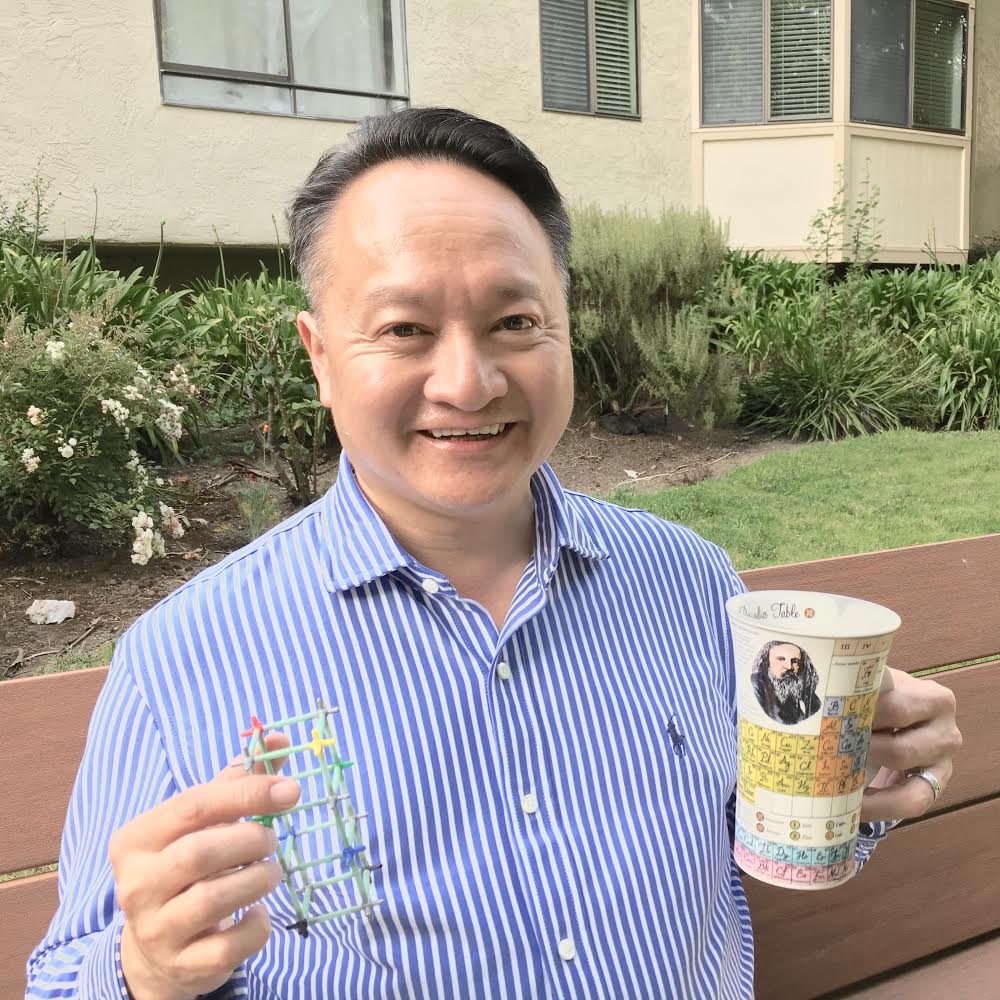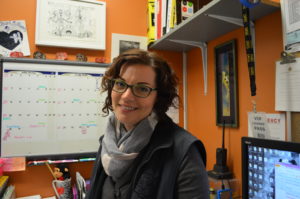The Constant Gardener — this is the the motto that Dr. Chinh K. Nguyen, Dean of Dean of Academic Services & Science Faculty at Lick-Wilmerding High School, feels has helped him live his life well. “When you see how gardeners and farmers harness the resources of the earth and cultivate it to produce food and beautiful things like flowers, you think ‘Wow, how amazingly down to earth is that.’ Teaching for me is like a hobby — I don’t think of it as work, I think of it as play.”
In his tenth year working at Lick, Nguyen reflects on some of his most memorable moments, success stories, and what he has learned throughout his career.
Born and raised in Saigon, South Vietnam, Nguyen moved to Washington, D.C. at the age of 9 to seek medical treatment in the States, and lived with his American godparents, who later adopted him.

His passion for teaching started at home at a young age, for his adoptive parents were teachers. He even recalls how because his father taught high school and his mother was a Vice Provost at a university, his family’s garage was like a well-kept thrift store and Home Depot, full of household goods (clothes, bedding, kitchenware, tools) so that students could stop by and get what they need.
“I enjoy explaining things and learning new things — I like to stay up late at night reading books, listening to new music, and learning new ideas and processes on the Internet. The ‘Constant Gardener’ [a film about a British diplomat on a mission to discover what happened to his wife] is a beautiful metaphor for how we must and want to take care of people and things.”
Nguyen started off his career in education as a Teaching and Research Fellow at the University of Texas at Austin, and later worked as a Teaching and Research Associate and Doctoral Candidate at the University of Chicago. One semester in 1985, when he was a lead teaching fellow at the University of Texas, he taught a lecture to over 2,100 students at the university concert hall. “It was the most scary teaching experience. I had to learn to present a certain way, look at the right camera, rehearse the lesson plan on stage, stand and walk strategically on stage. The camera zoomed in on you— it was scary, but fun!”
Later at UChicago, he was in charge of instructing 25 graduate teaching assistants to teach chemistry labs to 500 undergraduate students. He developed equitable rubrics that valued error analysis over accuracy, and designed over 27 experiments for undergraduate chemistry students. Following that, he served as Class Dean, Science Department Chair, and Student Research Director at the Latin School of Chicago before finally arriving at Lick in 2006. In total, he’s had a 32-year career in education!
An integral member of the Lick community, Nguyen has held various roles throughout his tenure here. During his first three years at Lick, he taught Sophomore Chemistry and co-taught Project Physics with Andrew Kleindolph, who led the measurement and computational lab work, while he led the Physics discussion. Following that, he became a part-time Junior/Senior Dean in his third year at Lick, while simultaneously teaching 9th grade Biology. Of the exprience, he says he was “fortunate to have such an amazing class of very inquisitive students who went beyond the syllabus and delved into atmospheric pollution, human evolution, and plant biology.”
However, he later assumed the responsibility of scheduling courses and became a full-time administrator for 2 years. Now, in his 10th year working at Lick, he has returned to the Science department, and currently teachers two Honors Chemistry sections. Currently, he is preparing his students to take the AP Chemistry exam, and has created two separate tracks in his class to accommodate those not taking the AP.
“Lick is amazing in the sense that students are curious, and we have some very kind and thoughtful students. I prefer to work with nice, kind, thoughtful students — they understand and respect collaboration. Even when thoughtful students struggle, they still want to learn. They don’t take short cuts. It’s a great thing to see constant learners interested in bettering themselves,” Nguyen says. Nguyen has been a constant learner in his own respect — in addition to his passion for science, he also enjoys learning about art and art literature. In fact, he has previously taught art to elementary students at the Latin School of Chicago, and often exchanges ideas with faculty in the Visual Arts department.
Additionally, Nguyen works annually with the National Association of Independent Schools (NAIS) annually to develop the curriculum for the People of Color Conference.
“Since I had incorporated diversity and multiculturalism into my science and arts lesson plans and volunteered on the Midwest Diversity Committee, NAIS in 2001 asked me to co-chair the People of Color Conference (PoCC) in Chicago. My local committee and I worked with NAIS staff during 2001-2002 to host 2600 people for the 2002 PoCC/SDLC in Chicago. Back then, NAIS did not have a script for how the conference should be run, so my local committee and I created the conference planning with NAIS, approving workshops and exhibits. As a former PoCC co-Chair, I have served for the last 15 years on NAIS Call-To-Action (CTA), a think tank of diversity practitioners who collaborate with and support NAIS in its diversity, equity, multiculturalism, and social justice initiatives at the national level. CTA meets every summer at the next PoCC/SDLC city to work on the latest trends and controversies in equity and justice work and help local committees to organize the next PoCC/SDLC. For the past 15 years, we’ve shared equity and justice works ideas and practices and learn from and support one another to co-cultivate a world of hope, dream, empathy and compassion.”
Nguyen concludes by saying that “Teaching is fun. The periodic table, like humans and PoCC/SDLC, has affinity groups and exceptions. The beauty in learning science, visual arts, and design thinking is to recognize trends but be open-minded to exceptions and new ideas and processes. Seeing students collaborating in classes, Library, the Caf,e hallway, studios and shops makes me really happy. Sometimes, some students may feel marginalized and so seeing students collaborate makes Lick so Lick.”







